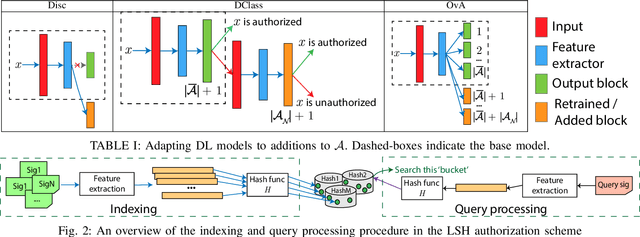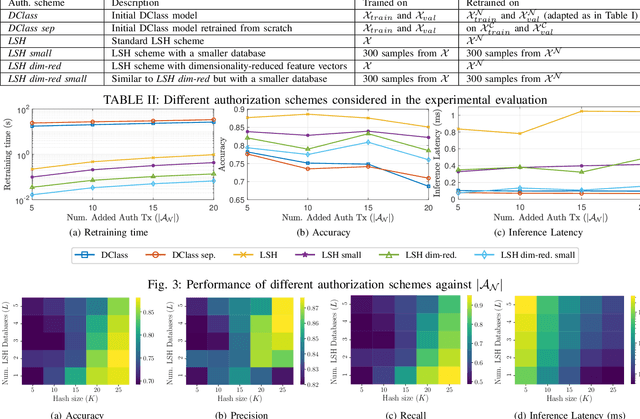Real-time Wireless Transmitter Authorization: Adapting to Dynamic Authorized Sets with Information Retrieval
Paper and Code
Nov 04, 2021



As the Internet of Things (IoT) continues to grow, ensuring the security of systems that rely on wireless IoT devices has become critically important. Deep learning-based passive physical layer transmitter authorization systems have been introduced recently for this purpose, as they accommodate the limited computational and power budget of such devices. These systems have been shown to offer excellent outlier detection accuracies when trained and tested on a fixed authorized transmitter set. However in a real-life deployment, a need may arise for transmitters to be added and removed as the authorized set of transmitters changes. In such cases, the system could experience long down-times, as retraining the underlying deep learning model is often a time-consuming process. In this paper, we draw inspiration from information retrieval to address this problem: by utilizing feature vectors as RF fingerprints, we first demonstrate that training could be simplified to indexing those feature vectors into a database using locality sensitive hashing (LSH). Then we show that approximate nearest neighbor search could be performed on the database to perform transmitter authorization that matches the accuracy of deep learning models, while allowing for more than 100x faster retraining. Furthermore, dimensionality reduction techniques are used on the feature vectors to show that the authorization latency of our technique could be reduced to approach that of traditional deep learning-based systems.
 Add to Chrome
Add to Chrome Add to Firefox
Add to Firefox Add to Edge
Add to Edge